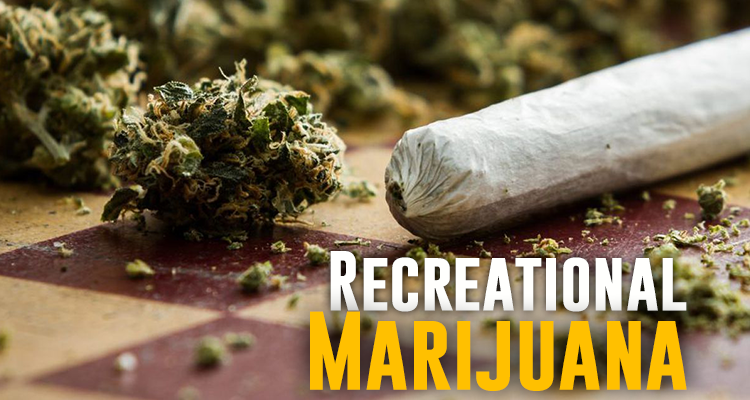ISP Releases Plans to Deal w/New Cannabis Rules
Published on June 28 2019 10:52 am
Last Updated on June 28 2019 1:39 pm
The Illinois State Police has announced public safety, training, and enforcement efforts, as well as the implementation of expungement and regulation requirements of the Cannabis Regulation and Tax Act.

“Whether it’s misconduct regarding alcohol or cannabis, public safety and the enforcement of the law will always remain our top priorities,” stated ISP Acting Director Brendan F. Kelly. “As the laws of the state of Illinois change, the ISP will ensure our officers, forensic scientists, telecommunicators, and support staff have the necessary training and tools needed to continue to enforce the laws in place and perform their respective duties,” he concluded.
Under the Act, the ISP will chair the DUI Cannabis Task Force, which is being created to improve enforcement and education regarding driving under the influence of cannabis. The DUI Cannabis Task Force will be made up of public safety partners, subject matter experts, and stakeholders, and all parties will work together to study and address concerns surrounding driving under the influence of cannabis and make recommendations to policymakers to protect public safety.
TRAINING
Illinois State Police Academy Cadets and Recruits receive training in Criminal Law, Illinois Vehicle Code (IVC), Standardized Field Sobriety Testing (SFST), and Drug Enforcement and Identification, which includes scenario-based training. Incoming Fast Track Cadets will also be provided with Advanced Roadside Impaired Driving Enforcement (ARIDE) training.
A large number of state police personnel are currently ARIDE certified; the ISP will work towards increasing the number of ARIDE certified and Drug Recognition Expert (DRE) certified sworn employees currently on patrol. Sworn employees will also receive additional training regarding oral fluid testing and case law when this becomes a testing mechanism utilized by the ISP.
ENFORCEMENT
The aforementioned ARIDE and DRE training courses will equip sworn patrol officers with additional tools to assist them in identifying impaired drivers who are under the influence of any drug or alcohol.
The ISP is currently researching oral fluid (saliva-based) testing. The ISP is gathering and reviewing feedback from other states that have legalized the adult use of recreational cannabis and are currently conducting oral fluid testing. Several states have implemented technology that has shown promise and could be effective here in Illinois. The Act provides for similar penalties for drivers refusing to submit to such tests as in the case of a driver refusing to submit to an alcohol breathalyzer. The ISP is working to implement this technology to identify driving under the influence of all drugs including opioids as soon as possible.
The ISP Forensic Laboratory System has acquired instrumentation and validated procedures to quantify blood THC levels in support of efforts to enforce DUI-Cannabis laws. This service is currently provided at the Springfield Forensic Science Laboratory. The ISP is in the process of procuring instrumentation to expand this service to the Forensic Science Center at Chicago.
EXPUNGEMENT OF ELIGIBLE RECORDS
The ISP Bureau of Identification (BOI) is currently evaluating the official state criminal history repository to identify the minor cannabis offense records that are subject to automatic expungement, or further analysis by the Prisoner Review Board. Once these records are identified, the ISP will comply with the processing and notification requirements of the Act.
ISP’s REGULATORY ROLE
The Illinois State Police currently has a Medical Marijuana Unit (MMU) which oversees and regulates the Medical Cannabis program, and was originally designed as a pilot program. The MMU will now assume the ISP’s regulatory duties for all of the cannabis programs, combining both the medical and the adult recreational use programs. The adult recreational use program will maintain the strict regulatory elements that have made the medical program a success.
The ISP provides regulatory guidance to both cannabis cultivation centers and dispensaries by inspecting all 21 cultivation centers and 55 dispensaries currently in existence on a monthly basis. Further, the ISP also inspects the transportation of medical cannabis products between cultivation centers and dispensaries on a random basis. In addition, the ISP helps safeguard the medical cannabis program by providing criminal investigation of diversion and other allegations of crimes. The legalization of the adult use of recreational cannabis will result in an expansion of duties with the addition of more cultivation centers and dispensaries, the new categories of craft growers, independent transportation providers, cannabis infusion centers (cannabis infused edibles among other items), and community college horticulture programs.
With the new law going into effect immediately, the ISP will expand the MMU to provide the same level of quality and regulation that has made the Medical Cannabis Pilot Program (MCPP) successful thus far. The ISP will develop inspection regulations for the new entities in the program and provide personnel with additional training on physical security in order to provide the proper oversight for the new cannabis entities. The ISP will also provide personnel with analytical support for the large expansion of the program, to ensure the safety and welfare of not only the patients and users of the program, but also, the citizens of Illinois and guests traveling to or through Illinois.













